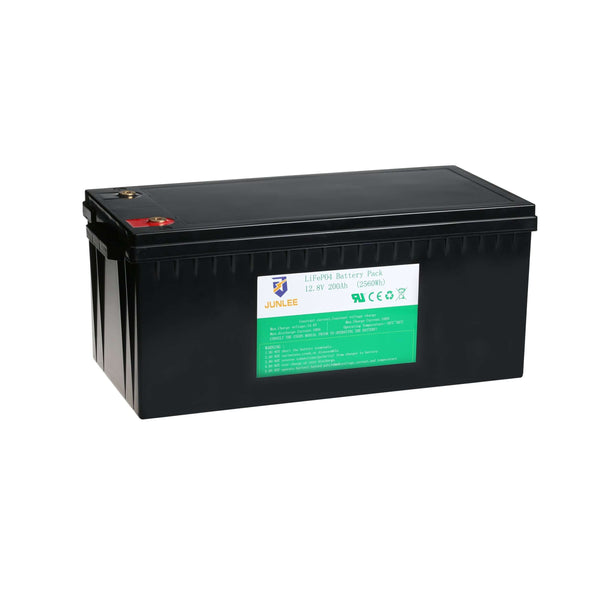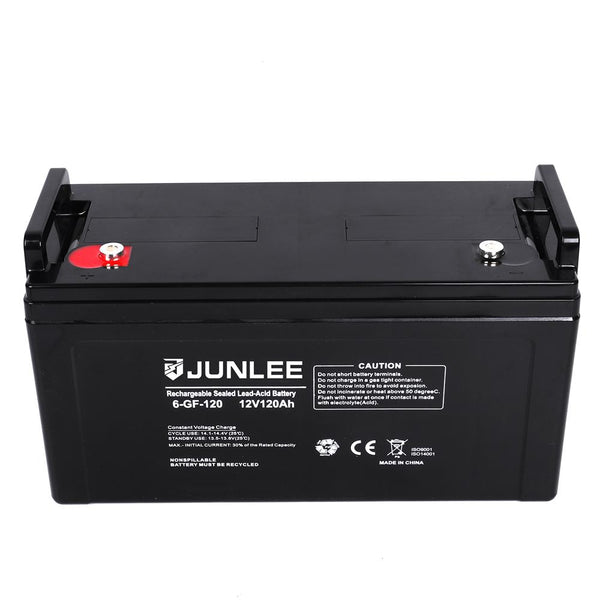The safety of lithium and lead-acid batteries has always been controversial among users. Some people say that lithium batteries are safer than lead-acid batteries, while others think the opposite. In terms of battery structure, the current lithium battery packs are basically cylindrical batteries, square batteries, and soft-pack batteries. Lead-acid batteries are basically maintenance-free lead-acid batteries and have good sealing properties. A safer person, as long as you look down, you will know!
lithium battery:
Lithium battery is a battery that uses lithium metal or lithium alloy as the negative electrode material and uses a non-aqueous electrolyte. Lithium batteries can be roughly divided into two categories: lithium metal batteries and lithium ion batteries. In 1912, Gilbert N. Lewis proposed and studied lithium metal batteries. Due to the very good chemical activity of lithium metal, the environment for processing, storage and use of lithium metal is very demanding. Therefore, lithium batteries have not been used for a long time. With the development of science and technology, lithium batteries have become the mainstream.

Lead-acid batteries:
Lead-acid battery (VRLA) is a battery whose electrodes are mainly made of lead and its oxides, and its electrolyte is a sulfuric acid solution. In the discharge state of a lead-acid battery, the main component of the positive electrode is lead dioxide and the main component of the negative electrode is lead. In the charged state, the main component of the positive electrode and the negative electrode is lead sulfate.
The nominal voltage of a single-cell lead-acid battery can be discharged at a voltage of 1.5V to 2.0V and charged to 2.4V. In applications, six single-cell lead-acid batteries are usually used in series to form 12-volt lead-acid batteries, as well as 24V, 36V and 48V.
Who is safer than lithium batteries than lead-acid batteries?
Lithium battery VS lead-acid battery safety
In terms of battery safety protection, the safety valve is designed for 18650 batteries, which can not only release excessive internal pressure, but also physically isolate the battery from the external circuit. This is equivalent to physically isolating the battery to isolate the safety of other battery packs in the battery pack. In addition, lithium battery packs are usually equipped with a BMS protection board, which can accurately control the state of each battery pack in the battery pack, and you can solve the problems of overcharging and overdischarging by yourself.
Lithium battery BMS battery management system can provide comprehensive protection for the battery. Its functions include: charge and discharge cold and heat protection; single cell overcharge/overdischarge voltage protection; charge/discharge overcurrent protection; battery power balance; short circuit protection; notification, etc.
The electrolyte of the lithium battery pack is a mixed solution of a commercially available lithium salt, lithium hexafluorophosphate lithium salt and an organic solvent. They are easily pyrolyzed at high temperatures and are reduced by thermochemical reactions with trace amounts of water and organic solvents.
Power lithium battery mainly uses lithium iron phosphate. The PO bond of lithium iron phosphate crystal is stable and not easy to decompose, but it will not generate heat even under high temperature or overcharge, and will not form strong oxidizing substances (such as lithium cobalt oxide). Security is good. In the actual operation, a small amount of samples were found to burn in the needle stick or short circuit experiment, but no explosion occurred. The safety of lithium battery packs has been greatly improved. In contrast, lead-acid batteries lack the protection of the BMS system. Except for the safety valve, lead-acid batteries seem to lack safety protection, and in fact there is no BMS protection. Good condition when used with low-quality chargers.
Electric vehicles often explode spontaneously, and the most common cause is battery charging and discharging. Some experts say that the charging time of a lead-acid battery is too long, and it continues to charge even after the pole is converted into an effective substance. If it is charged to the end, a large amount of hydrogen and oxygen will continue to charge. If the concentration of this mixed gas accounts for 4% of the air, it is too late. If the vent is blocked or there is too much gas, if it is hit by a flame, it may explode, which may damage the battery and cause injury or serious injury. In other words, if a lead-acid battery is overcharged, there is a greater chance of explosion. The current lead-acid batteries on the market do not perform the "overcharge protection" function, which makes the lead-acid batteries very dangerous during the charging process, especially at the end of the charging.
Finally, if the battery structure is damaged by an accidental collision, the lead battery looks safer than the lithium battery. But at this accident level, the battery material has been exposed to the open air and is not explosive.
From the above-mentioned safety risks of lead-acid batteries and lithium iron phosphate batteries, it can be seen that the biggest safety risk of lead batteries lies in the constituent materials. The electrodes of lead-acid batteries are mainly made of lead and its oxides, and the electrolyte is a sulfuric acid solution. The stability of these components is not very high, if leakage or explosion occurs, the damage caused by lithium batteries is greater.
JUNLEE Group is an integrated full power energy factory that specializes in Uninterruptible Lithium battery , Power Supply (UPS), Lead-Acid Battery, Battery pack, EV battery, Energy Storage Battery, Energy storage power station, Power pack Gel battery, PV Inverter and Solar system.
Production capacity reach 200000 KVaH per month. Products apply to Electric vehicles,electric mobility, solar & wind energy storage system, UPS, backup power, telecommunication, medical equipment and lighting.
JUNLEE sets up "Power research center" with more High-tech products.More than 100 engineers provided in-time and efficient one-stop solutions.
They mission strives to bring green power to the world.
To learn more about Li-ion batteries, please refer to https://www.junleepower.com/


